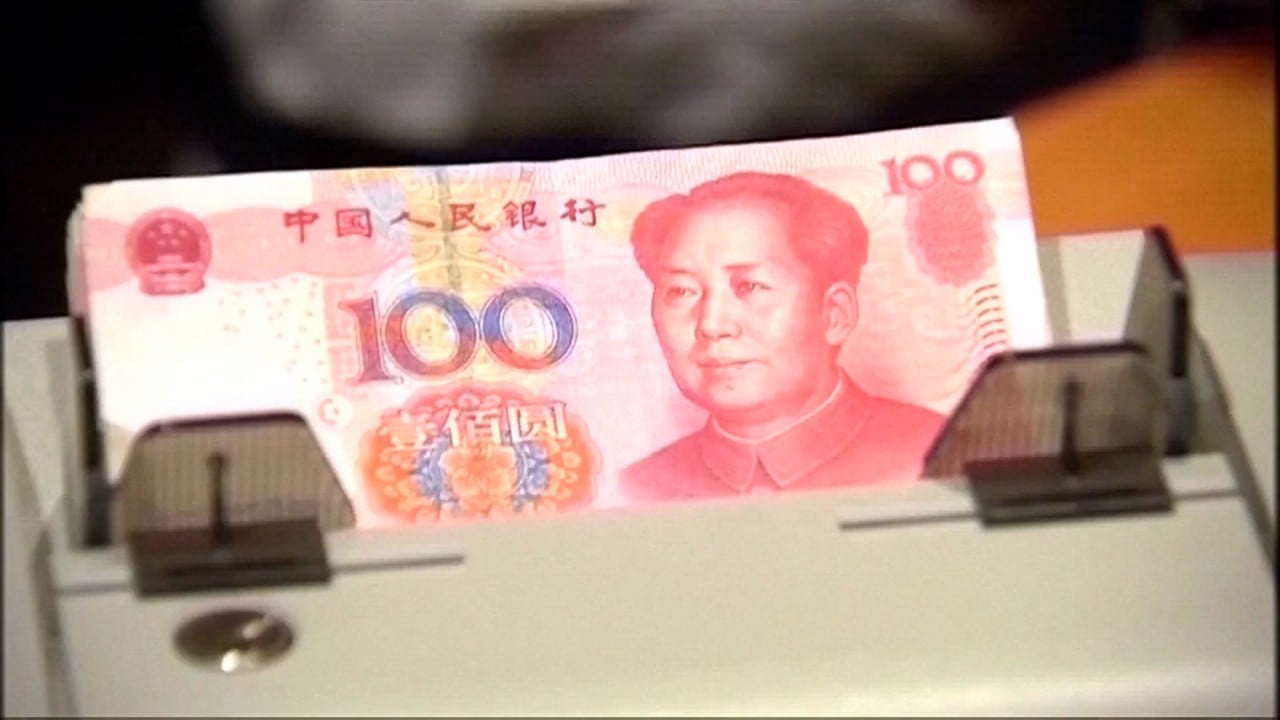
China’s economic slowdown prompts Beijing to reaffirm commitment to opening up financial markets
- The State Council on Wednesday reaffirmed its commitment to open up to foreign investments
- Since the start of the US-China trade war in 2018, Beijing has been attempting to open up its financial markets
China will step up its plans to further open up the financial industry to foreign investments as a means of shoring up its post-coronavirus economic recovery and to also help tackle the prospect of a slow down later in the year.
The country must push on with its commitments to open up the banking and insurance sectors, while leveraging both the international and domestic markets, to establish itself as “a popular destination for foreign investment”, the State Council, China’s cabinet, said in an executive meeting on Wednesday.
“As a developing country, China’s development must rely on the real economy. Greater financial openness should better serve the real economy, which is of great importance to maintaining the country’s economic stability,” said Chinese Premier Li Keqiang.
The wider opening-up of the financial sector will help foreign institutions to share the dividends of China’s economic development and will also help promote the further development of the
But Li also warned that the government should safeguard economic and financial security as its economy opens up further.
“[China] should ... use [foreign capital] to our advantage, especially guiding the capital flow into the real economy to help the innovation and industrial structure transformation of the country,” Xu Hongcai, deputy director of the economic policy commission under the China Association of Policy Science, said on Thursday.
Xu added that the authorities need to plan ahead by providing targeted guidance to systemically important financial institutions amid the economic slowdown to avoid the financial risks from spreading across industries and across borders.
“Expanding opening to the outside world will also inevitably increase the potential risks and challenges facing the country.”

01:19
China’s economy rose 7.9 per cent year on year in the second quarter of 2021
China had also already committed to opening up its financial markets when it joined the World Trade Organization almost 20 years ago, but it has faced criticisms for failing to make good on its promises.
Wednesday’s State Council meeting said that China will take the necessary steps to achieve a higher level of financial openness based on a negative list approach and by aligning with higher international standards.
It will also refine the market access threshold for foreign-invested financial institutions, such as banks and insurance companies, while also improving the rules concerning cross-border transactions between parent and subsidiary firms of financial institutions and optimising the channels for foreign capital to enter the Chinese domestic financial market.
The meeting also said that the country will improve management requirements for direct investment projects that are closely related to the real economy. It also said China will look to keep the yuan exchange rate basically stable and at an adaptive and balanced level.
The State Council also called for the building of mechanisms for the monitoring, evaluation and early warning of systemic financial risks, while also improving its macroprudential policy framework.
The meeting also decided on measures to further facilitate cross-border trade and reduce the time and money lost during customs clearance, which should ensure a steady growth of imports and exports in the second half of the year given “changes in international situation and environment”.
China’s exports grew by 32.2 per cent in June compared with a year earlier, up from 27.9 per cent growth in May, while imports grew by 36.7 per cent last month, year on year, down from 51.1 per cent growth in the previous month.
“The growth rate of foreign trade will decline to a certain degree in the second half of the year due to higher base a year ago,” Li Xingqian, head of foreign trade at the Ministry of Commerce, said on Thursday.
“The development of foreign trade still faces many uncertainties and instabilities. The continuous pandemic, the fragile recovery of the world economy, high raw material prices, and poor shipping and logistics all have further squeezed the profit margins of trade companies and affected their willingness to take orders.”
Li added that the authorities will introduce more targeted policies to reduce the overall cost for trade companies.
Of course, opening-up is to make the cross-border flow of capital more flexible and free in the future, but we also need to do some concrete work to ensure financial stability
The State Council meeting on Wednesday also noted that more than 100 foreign-invested banks, insurance, securities, payment and clearing institutions have been approved to set up business in China in recent years.
But, while strengthening financial support for the real economy and preventing any systematic financial crisis in the years ahead, domestic financial institutions have shown ever-declining efficiency, warned Huang Yiping, a former central bank adviser and now deputy dean of Peking University’s National School of Development.
“Financial opening is a very important channel to achieve these two goals,” he said during a speech in March.
“Of course, opening-up is to make the cross-border flow of capital more flexible and free in the future, but we also need to do some concrete work to ensure financial stability.”
So far, foreign companies such as Goldman Sachs, Morgan Stanley and Credit Suisse have set up joint venture securities companies in China, while American Express has been approved for a bank card clearing business license for its joint venture business. Last year, rating company Fitch also joined S&P in entering the Chinese market.

